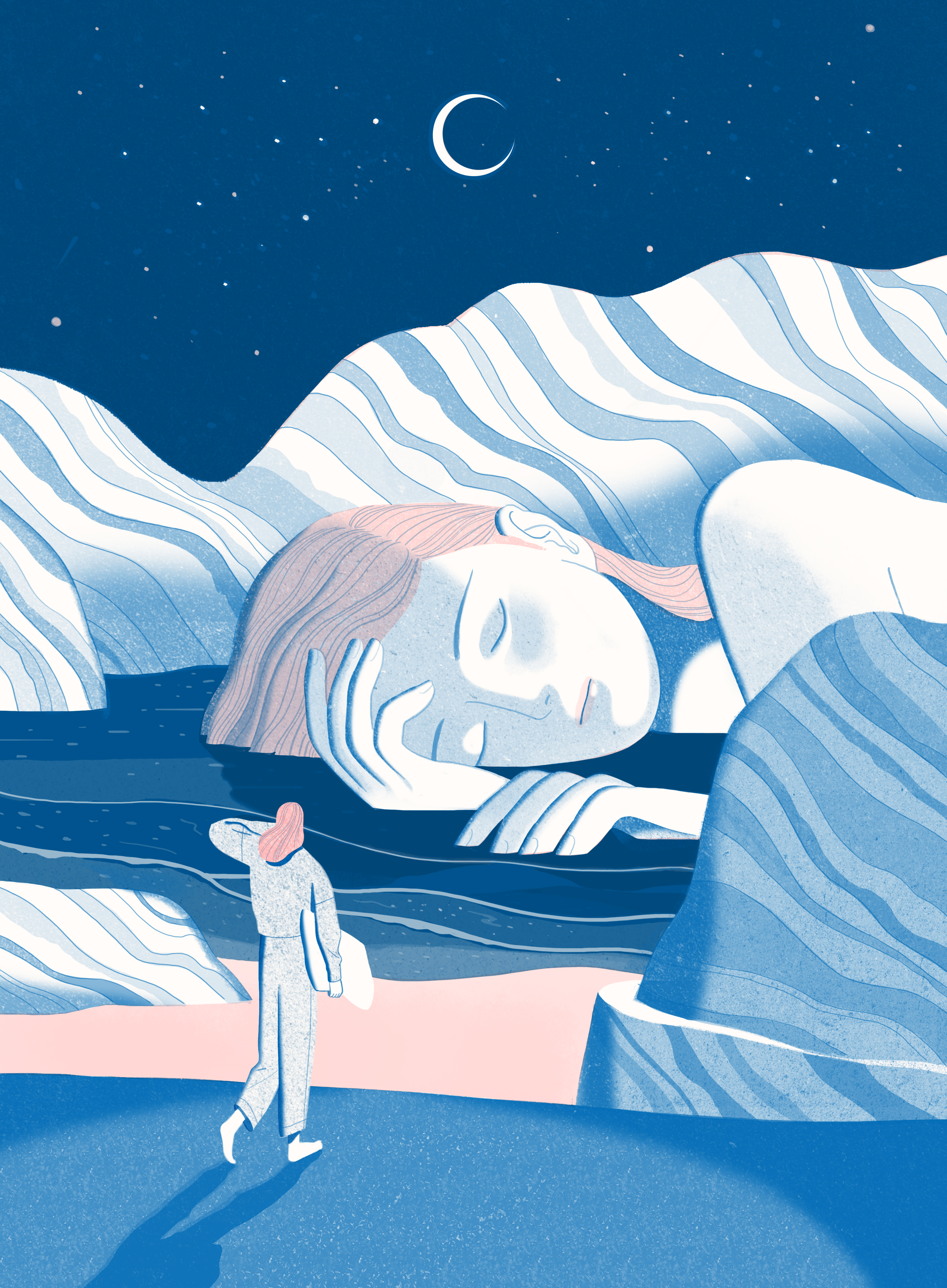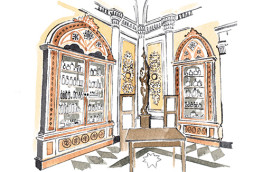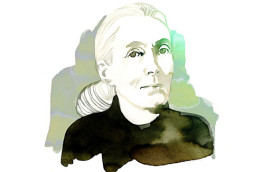Sleep, wrote Vladimir Nabokov in his 1967 autobiography, Speak, Memory, is a “nightly betrayal of reason, humanity, genius”. Only dullards do it, apparently. “Sleep is the most moronic fraternity in the world,” he declares. “It is a mental torture I find debasing.”
Nabokov’s romanticization of the writer as a hyper-alert insomniac forging his creative path while the world is sleeping couldn’t be more off-message today. It is, we now know, smart to sleep. Scientific research points to regular sleep as the gateway to brain function, wellbeing and an optimized immune system. In our 24/7, interconnected, performance-driven, global society, sociologists have identified a sleep and society agenda in which health, aging and life expectancy are key public health issues. We are living longer, and we want to live well. However, according to the World Health Organization (WHO), as many as 150 million of us worldwide suffer from some kind of sleep disorder; two thirds of us living in the developed world fail to get the eight hours per night WHO recommends. Neuroscientist Matthew Walker, author of Why We Sleep, has said that we are in the midst of a “catastrophic sleep-loss epidemic”. There are over 100 diagnosed sleep conditions, the most common of which is insomnia. Look no further than Shakespeare’s Macbeth to see the detrimental effects of sleep-deprivation. It’s a punishing condition.
Once upon a time, insomnia sufferers counted sheep to nod off. These days we might just as well recite the latest sleep trends that have sprung up. In our social media age, we use sleep monitors to tell us what is obvious: that we are no longer connected to our circadian rhythm, the internal clock that tells us when to rest and when to wake. Sleep, the most natural thing in the world, has been commodified, with a competitive sleep industry constantly inventing new ways to enhance, prolong and promote our sleep. It’s big business: the global sleep market is set to be worth $80bn by 2020.
Sleep science is a by-product of this industry, and its researchers point out that electronic media is now as much part of our going-to-bed routine as brushing our teeth. Sleep latency – the amount of time between getting into bed and falling asleep – must now be thought of as the gap between turning off an electronic device and falling asleep. As a recent study published in the Journal of Sleep Research earlier this year suggests, it might now be time to replace “lights out” with “media out”.
We would be wise to throw an ancient de-stressor into the mix, whether it’s acupuncture, meditation or a full body or head massage. The St. Regis Deer Valley Resort asks for 110 minutes of your time; that’s what it takes to send you on what it calls a Deep Sleep Journey. A full body treatment, it offers a level of relaxation that toxic time spent on Netflix or Facebook never can. A simple head massage, such as the St. Regis champi head massage, which uses Ayurvedic herbal oils, triggers points on the back of the skull that relieve tension and lessen insomnia. And yet many of us eschew such energy-releasers because we’re time-poor. Why? Because we aspire to do more and to achieve more. Hence the rise of the power nap, the sleep pod in the office and the very modern quest for quantified, quality sleep. Hence the rise of apps that track our sleep patterns and tot up our sleep debt.
One of the very latest offerings is a sleeping device called Somnuva – a sound management solution that looks like a standard Bluetooth speaker and digital clock. It uses sound therapies to break bad sleeping habits and restore natural sleeping patterns. Its USP is a sleep algorithm designed not only to get you sleeping better, but for the recommended full eight hours; it produces tones and pulses which are tuned to match the different stages and brain wavelengths of REM and non-REM sleep cycles. Once these sound combinations lull you to sleep, they supposedly keep you asleep. The brain subconsciously follows the sounds until your eight hours are up.
Even the common mattress has wised up to what media mogul Arianna Huffington dubbed “the sleep revolution”. One particular smart bed raises itself by seven per cent when the sleeper snores and, using air compressors in its frame, adapts to the sleeper’s body movements. Bed-in-a-box, vacuum-packed mattresses feature built-in sensors that sync with your smartphone sleep tracker app. Micro-climate mattresses are another trend; they adapt to your body’s change in temperature as you sleep, so that you are never too hot or too cold. Bamboo, gel or memory foam pillows do the same. Hot sleepers have kissed nights in white satin goodnight, choosing instead temperature-regulating, moisture-wicking sheets laid on top of water-based, app-controlled mattress-toppers. The so-called “performance” sheets use breathable fibers and harness the latest fabric technology. These, in turn, require performance sleepwear. Again, breathable fabric is key here, and nature once again looms large, with silken bamboo, already popular as a sportswear fabric, adapting to your body temperature.
Natural sleeping aids used as part of a winding-down ritual seduce us into a sleep-ready, stress-free frame of mind. Brief meditation or mindfulness sessions, a herbal tea, writing a mind-clearing To Do list or Gratitude list are as de rigueur as wearables and sleeping apps. Time-honored magnesium or – a favorite of The St. Regis Langkawi’s therapeutic bath ritual – lavender and coconut milk in a warm bath, provide the sweetest pillow talk.
Your Address: The St. Regis Langkawi; The St. Regis Deer Valley Resort



